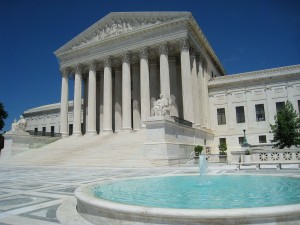Demystifying the Process of Federal Appeals: What You Required to Know
Browsing the detailed world of government appeals can frequently seem like going across undiscovered waters for those strange with the process. Recognizing the nuances of appellate court territory, the details of filing a notice of allure, providing a compelling short, and making a persuasive dental disagreement are essential elements that can substantially impact the result of an instance. By unraveling the layers of intricacy bordering federal allures, people can gain a more clear understanding into the devices that govern this important stage of the legal system.
Understanding Federal Appeals Refine
Exploring the complex realm of the government allures process introduces a methodical and organized trip through the judicial system - top federal appeal lawyers north carolina. Federal appeals offer as a critical system for assessing decisions made by reduced courts. Recognizing this process is necessary for anybody associated with lawful procedures at the federal level
The process usually begins with a party disappointed with a lower court's ruling filing a notification of charm. This sets off a testimonial by a higher court, where a panel of judges analyzes the lawful arguments provided by both events. Briefs laying out the lawful reasoning behind each celebration's placement are sent, and dental disagreements may be heard to make clear complicated concerns.
The appellate court's choice is based on a detailed evaluation of the reduced court's process and the disagreements provided. As soon as the appellate court gets to a choice, it can affirm, reverse, remand, or change the reduced court's judgment, giving clarity and finality to the legal conflict.
Appellate Court Jurisdiction Discussed

Appellate courts have territory over specific sorts of cases, generally those including lawful errors, procedural concerns, or concerns of law instead of accurate disagreements. The jurisdiction of appellate courts is typically described in statutes and laws that govern the court system. Understanding appellate court territory is critical for events involved in the charms process as it establishes whether an instance is eligible for evaluation and the level to which the appellate court can interfere in the lower court's choice.
Filing a Notification of Appeal
The initial action in starting the federal appeals process involves filing a Notification of Charm with the ideal appellate court. phoenix federal crime appeal lawyers. This vital file officially informs the court and the other events associated with the case that the appealing party intends to look for a testimonial of the lower court's choice. Submitting a Notification of Charm is a strict procedural requirement that sets the appellate process moving
When preparing the Notification of Charm, it is important to ensure conformity with the certain regulations and guidelines of the relevant appellate court. The file must normally include info such as the case name, the lower court's name, the day of the judgment being appealed, and a succinct declaration indicating the grounds for the charm.
Timeliness is important when submitting a Notification of Charm. Missing the due date for submitting this paper can cause the allure being disregarded, emphasizing the importance of timely and accurate initiation of the charms procedure. It is recommended to look for legal support to navigate the intricacies of submitting a Notification of Appeal efficiently.
Briefing and Oral Disagreement
In the appellate process, providing created briefs and taking part in oral disagreements play critical functions in supporting for the appealing event's position before the appellate court. Briefs are extensive lawful documents that outline the celebrations' disagreements, lawful authorities, and evaluation supporting their placements. These composed submissions offer the court with an in-depth understanding of the realities of the instance, the pertinent law, and why the appealing celebration believes the lower court's decision ought to be reversed.
Complying with the submission and evaluation of the briefs, dental debates offer the parties an opportunity to further clarify their positions, deal with any questions the appellate judges might have, and emphasize crucial factors from their written briefs. Oral debates are an opportunity for the lawyers to encourage the judges via verbal campaigning for and reactions to questions from the bench.

Obtaining the Appellate Court Choice

Final Thought
Understanding the appellate court territory, submitting a notification of allure, preparing briefs, and providing dental disagreements are all important components of this process. Ultimately, obtaining the appellate court decision can give clarity and resolution to legal conflicts.
As we progress from comprehending the federal allures process to exploring the complexities of appellate court territory, a basic facet comes to light regarding the authority and limits of these greater courts in the lawful landscape. Appellate court territory refers to the extent of situations that a particular appellate court has the power to determine and examine upon. Unlike test courts that hear situations for the initial time, appellate courts are limited to assessing decisions made by lower courts. Recognizing appellate court jurisdiction is important for celebrations included in the charms process as it determines whether a situation is qualified for testimonial and the degree to which the appellate court can intervene in the reduced court's decision.
Whether the appellate court verifies, reverses, or remands the reduced court's choice, understanding the ramifications of look at these guys the judgment is crucial for all celebrations included in the appellate process.
Comments on “Trusted Federal Crime Attorney: Comprehensive Defense Versus Federal Allegations”